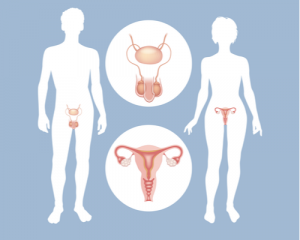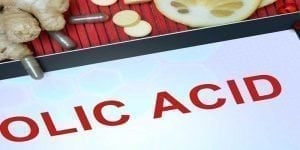Amino acids (also called non-carbohydrate complex nutrients) are the building blocks of protein. It has been shown that certain amino acids in the body can positively contribute to fertility. This article highlights the key roles of amino acids in the body, how they impact fertility and the top amino acids that help improve fertility.
What Are Amino Acids?
Amino acids are vital organic compounds that form the building blocks of protein. Comprising over one-third of the human body, protein is so essential that our bodies cannot function properly without it.
Essential amino acids are those that the body cannot produce independently and therefore must obtain from food. There are 10 essential amino acids, and it is recommended that all adults consume a food source of at least two of these amino acids each day.
The human body can manufacture some of this nutrients from other precursors such as carbohydrates, fats or other amino acids. The body does not store most amino acids; instead, they are used for energy during metabolism. However, individuals with specific disease conditions such as diabetes or urea-deficient states can experience a serious amino acid deficiency.
Amino Acid Role in Fertility

This nutrients have a role in the body’s ability to produce sperm and eggs. They also have an impact on the health of the reproductive organs. Deficiencies in certain amino acids may compromise the health of the reproductive organs, such as the testes (production of sperm), the prostate gland (production of urine), the hypothalamus (regulation of the reproductive hormone) and the pituitary gland (production of hormones).
Why Are Amino Acids Important for Fertility?
There are several reasons why this nutrients are important for fertility. Firstly, some amino acids support healthy sperm development. An amino acid deficiency in males may cause abnormal sperm development and poor sperm motility. Females’ deficiency may result in low egg quality and egg reserves.
It has also been shown that certain amino acids may improve fertility by supporting the health of the reproductive organs. Vitamin B6 deficiency, for example, has been linked to reduced sperm count and poor sperm quality.
Top Amino Acids for Fertility
The following is a list of the amino acids with the most relevant roles in fertility.
- Serine: This amino acid is important in sperm production and motility. It can also replace tryptophan, which is found in a large portion of amino acid supplements and is used to create the sleep-inducing hormone serotonin.
- Arginine: This amino acid supports the growth and health of the reproductive organs such as the uterus, ovaries and testes.
- Ornithine: This amino acid is a precursor to the growth hormone released during low blood sugar conditions. It is also used by the body to make amino acids like glutamic acid, which is important for brain function, and citrulline, which improves blood flow to the heart.
- Isoleucine: This amino acid is an important building block for creating hormones.
- Tyrosine: This is a precursor to the hormones dopamine and norepinephrine, which are very important for mood regulation and sexual desire.
- Methionine: This amino acid is important for growing eggs and sperm.
- Threonine: This amino acid is a building block for creating proteins.
To incorporate these top amino acids in daily nutrition, dietary choices can provide a healthy amount of each with a balanced and plentiful nutrient-dense approach. To help you with specifics however, here are some foods that are high in each amino acid.
Serine: Soybeans, nuts (especially peanuts, almonds, and walnuts), eggs, chickpeas, lentils, fish (especially shellfish)
Arginine: Meat (red meat, chicken, turkey), fish (salmon), nuts and seeds (almonds, cashews), legumes (soybeans, chickpeas), whole grains (brown rice, oats).
Ornithine: Meat, fish, dairy, and eggs.
Isoleucine: Meat, fish, poultry, eggs, cheese, lentils, nuts, and seeds.
Tyrosine: Soy products, chicken, turkey, fish, peanuts, almonds, avocados, bananas, milk, cheese, yogurt, cottage cheese, lima beans, pumpkin seeds, and sesame seeds.
Methionine: Fish (tuna, salmon, shrimp), meat (beef and lamb), brazil nuts, soybeans, tofu, beans, lentils, wheat germ, and spirulina.
In regard to supplementing with additional amino acids, it is best to consult with your doctor or specialist to confirm dosage that is right for your current health situation and fertility goals.
Conclusion
Amino acids are a key component of the human diet and are required for good health. Several amino acids have been found to have a positive impact on fertility. It is recommended that men who are trying to conceive eat foods rich in methionine, and women who are trying to conceive eat foods rich in lysine.
One way to ensure you are eating a variety of amino acids is to make sure you are eating a varied diet. This will ensure you are getting a variety of foods, and you will likely consume a variety of amino acids throughout the day.




